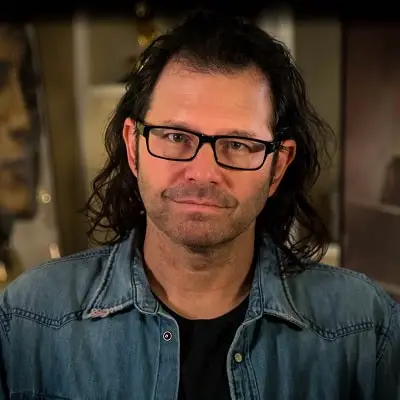Day in the life of
Producer – Shane Stanley

Being a filmmaker allows me to have many facets of a career. I am able to use both sides of my brain because one-third of my time is spent doing the “business” side of the film while the other two-thirds are spent as a creative making movies. I get to interact with fellow artists and creatives – other people who are passionate about what they do and can look at words on a page, and create something real for the world to see – and something they will hopefully enjoy.
What does your typical day look like?
When I’m not in production and am working on the business side, I try to work from 8-4, as it’s mostly desk work which includes raising capital for our next project, overseeing the marketing of a film we’ve just completed, or just overseeing the day-to-day of the company. On the flip side, when it’s “go-time” and a film has been greenlit, my days often start at 4 in the morning and go until 9 or 10 in the evening. It seems there’s never enough time in the day to prepare for an upcoming production. I equate it to trying to have a picnic at the end of a runway.
I am very hands-on and am directly involved with virtually every aspect of producing a project from its concept-to-delivery, so if you think about where a project starts – on paper – and where it ends – on the screen, my workload is pretty intense. I thrive under pressure so I enjoy the chaos of pre-production and shooting a film much more than the downtimes sitting at the desk or taking meetings. I love working with my crew, the actors who agree to be a part of the project, and all the places my choice of profession allows me to go. No two days are the same – never – and I love how one day you could be working in your office approving costume concepts or storyboards and the next, scouting the Bukit Peninsula of Bali, Indonesia.
Once the film’s shooting is completed, I begin the editing process which usually runs three to four months, and after the picture is “locked” work with our composer, colorists, VFX team, and sound mixers to deliver. After the film is completed, the marketing and press tour begins as we prepare to send the project off into the world and soon after, the process starts all over again.
What are some of your key responsibilities? Because I am a concept-to-delivery type of filmmaker, I am involved in everything from the story concepts we produce, the raising of capital to make the film, its pre-production which includes hiring the crew, casting the actors, contracting our vendors, and even choosing the locations – and that’s just before we pull the trigger and shoot. Once that begins I am the first guy there and the last to leave a set and physically cut (edit) our films and shape them from beginning to end. As I enter into my 30th year of producing, I am fortunate to have an incredible and loyal team who understands my vision, my quirks, and tolerates me throughout the process with a support system like no other. I work very closely with our distributors collaborating with our film trailers, the key art (movie posters), and marketing plans for the project as well as stay in communication with the talent who act in the film to see that they participate in press and interviews prior to its release.
Pros and Cons
If you love what you do, you never work a day in your life, right? I honestly haven’t found a ‘con’ in what I do. Sure, you have better days than some but when you do what you love, I don’t think there’s such thing as a bad day. Making a film is like having a love affair. You know going in it will consume 6-18 months of your life. It will be exciting and filled with many twists and turns but eventually will come to an abrupt end. I wish I could spend less time in post-production and get on to the next project quicker, but my formula and schedule (aka workload) work for me, I have grown accustomed to the entire process and honestly wouldn’t want it any other way.
Producers
plan and coordinate various aspects of radio, television, stage, or motion picture production, such as selecting script, coordinating writing, directing and editing, and arranging financing.


.jpg)